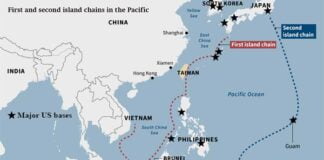KEVIN RUDD’S announcement at the Pacific Islands forum that he would grant 2500 temporary work visas over three years to Pacific Islanders to pick fruit and vegetables has sparked debate within the Australian union movement and the left.
Some have opposed it outright, likening it to the 457 temporary work visa scheme (which in some cases has seen horrendous levels of exploitation) or, even worse, to the practice of “blackbirding”, where Pacific Islanders were treated like slaves on Queensland’s sugar plantations in the late 19th century.
Such comparisons are ill-founded. While the scheme only allows visa holders to stay for seven months in a 12-month period, it is voluntary.
Secondly, the Australian Workers Union, not known historically for welcoming migrant workers, says that the scheme will be implemented on the proviso that workers are made familiar with Australian award conditions, and that they are paid at least award wages.
Moreover, the remittances Islander labourers send home will be of genuine assistance to impoverished economies whose resources have long been plundered, not least by Australia. Given this imperialist history, where states like Nauru have been literally dug out of existence, we should be demanding that Australia’s borders be opened up completely to our Pacific neighbours.
Of course, many agricultural bosses will seek to circumvent award conditions, and the need to organise these new workers on the job will be paramount. The union movement must also push for provisions that will allow these workers to gain permanent residency within a short space of time.
Both Australian farmers and Pacific Island governments had been lobbying the Howard government for years to introduce such a scheme. Yet for Howard, racist immigration controls, along with his self-appointed “deputy sheriff” role in the Pacific, were more important.
While Rudd is continuing Australia’s military and police presence, for example in the Solomon Islands, Labor realises that its long-term economic goals can be better furthered by a subtler approach than simply using the stick against Australia’s nearest neighbours.
It’s therefore not surprising that far from an act of altruism, the granting of a few thousand temporary visas is being used by Rudd as a carrot to encourage the removal of trade and investment barriers across the region.
Australian officials have said that whether there is a review in 18 months time for a possible expansion of migrant labour numbers and the number of countries involved beyond Papua New Guinea, Vanuatu, Kiribati and Tonga, will depend on the progress made in negotiations for a regional free trade agreement, known as PACER Plus.
Australia is also resisting attempts by the Pacific states to negotiate such deals as a block, preferring instead to pick them off individually with a series of bilateral “agreements”.
AidWatch’s Flint Duxfield pointed out in the Canberra Times that up to a third of revenue in countries such as Tonga and Vanuatu comes from tariffs on imports, that free trade will make it even harder for these countries to provide basic education and health services, and that bringing in GST-style taxes as a way to compensate for lost government revenue will only increase inequality within these countries.
He added that, “Managed carefully, a labour mobility scheme has clear potential to help Australian farmers and aid development and poverty reduction in the Pacific.
“[However] using such a scheme to pressure the Pacific countries into a free trade agreement opposed to their interests is only likely to increase resentment in the region”.
By Mark Goudkamp





